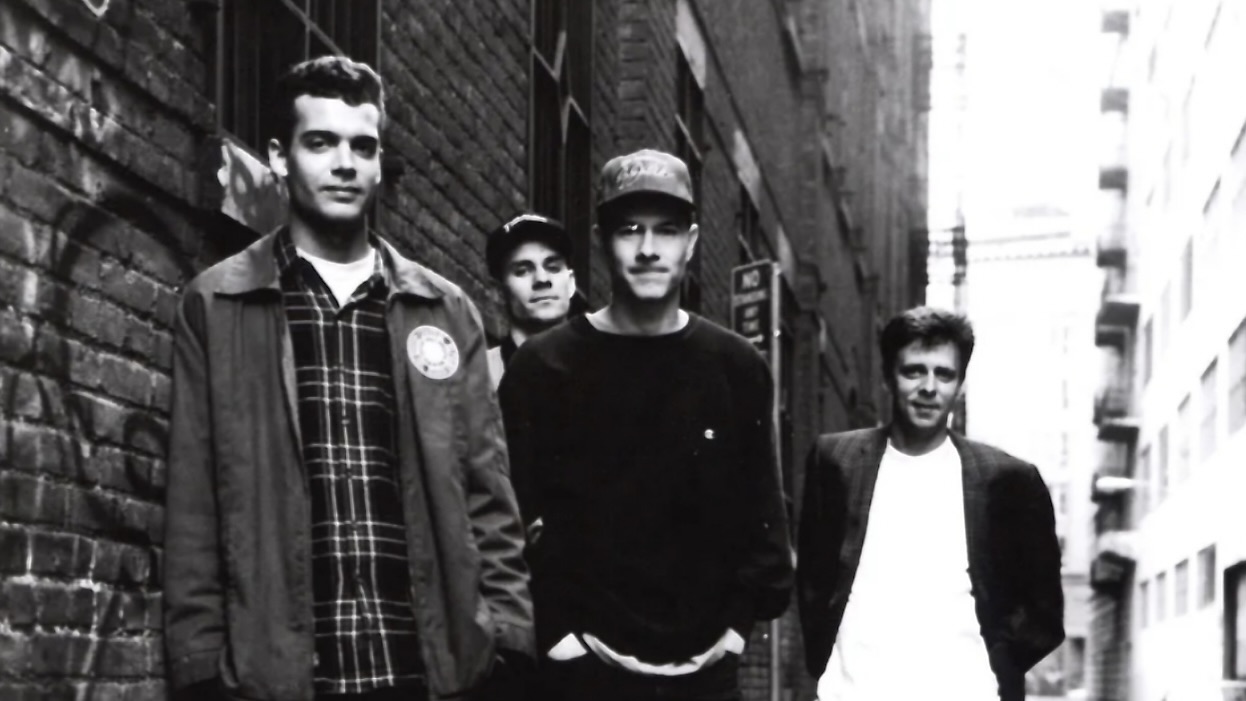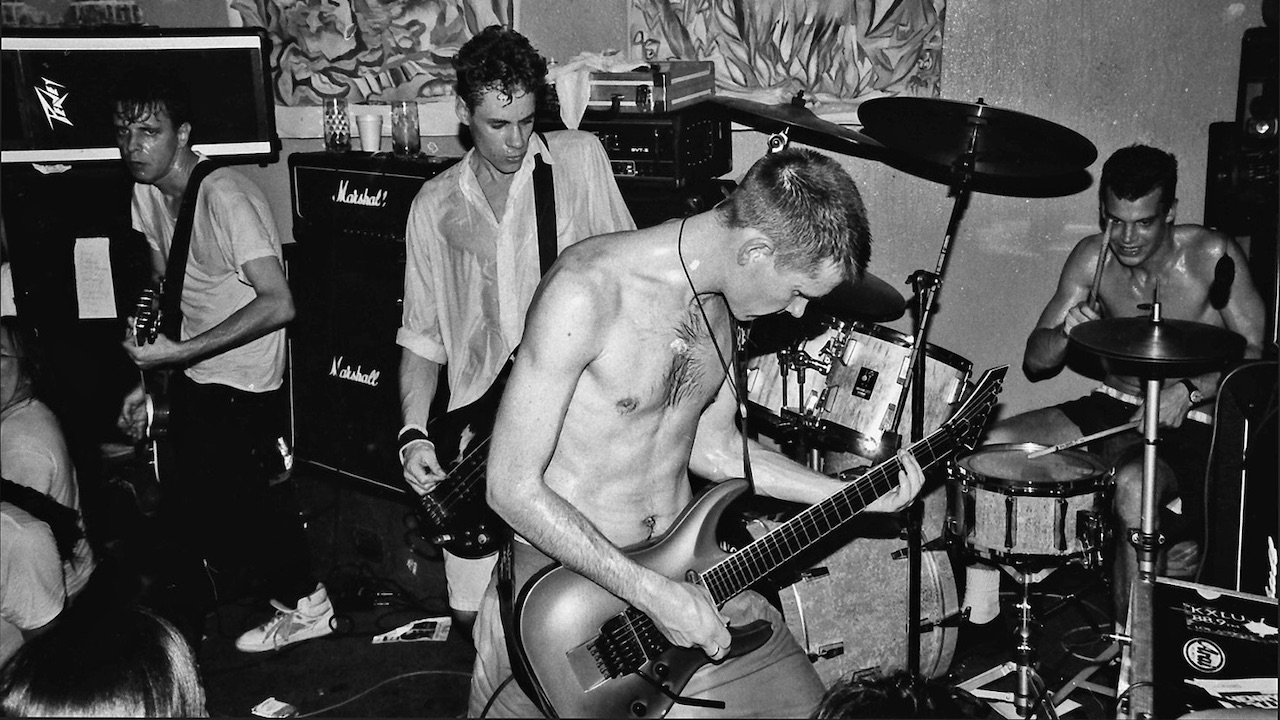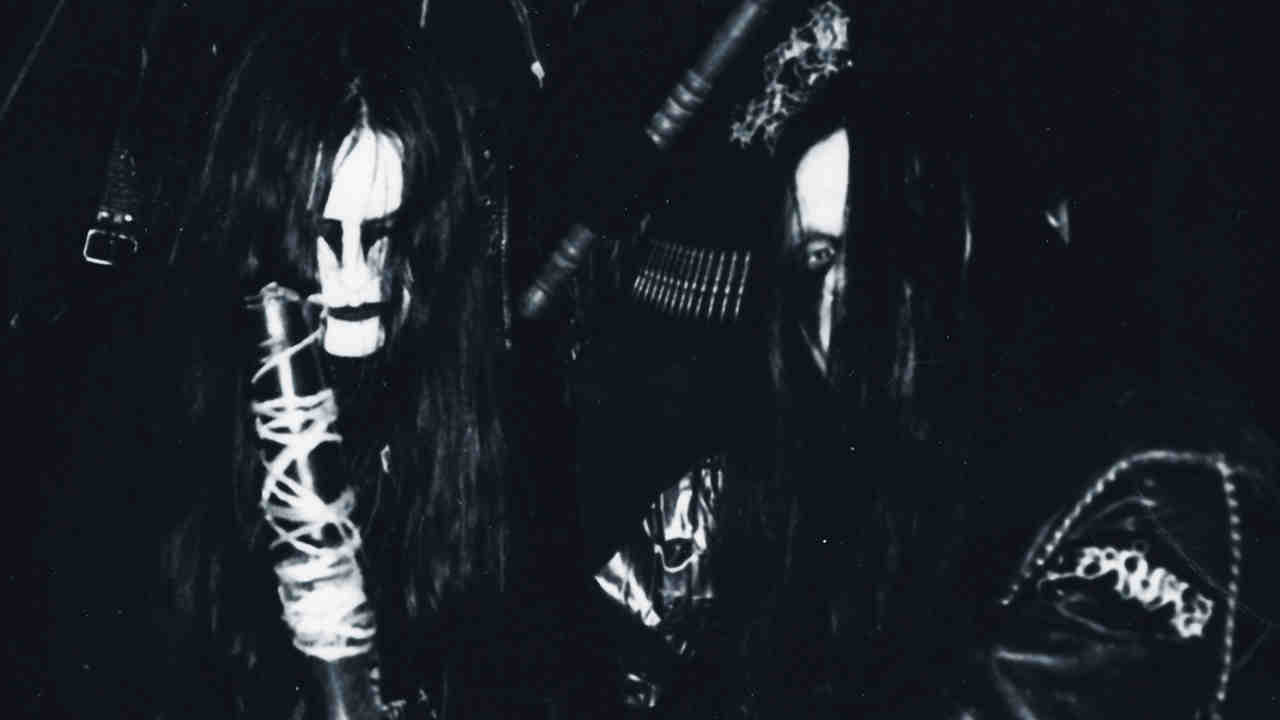Helmet's Meantime at 30: The alt.rock masterpiece still shaping modern metal
Released on June 23, 1992, Helmet's Meantime has hit its 30th anniversary. Here's why it remains essential listening

Select the newsletters you’d like to receive. Then, add your email to sign up.
You are now subscribed
Your newsletter sign-up was successful
Want to add more newsletters?

Every Friday
Louder
Louder’s weekly newsletter is jam-packed with the team’s personal highlights from the last seven days, including features, breaking news, reviews and tons of juicy exclusives from the world of alternative music.

Every Friday
Classic Rock
The Classic Rock newsletter is an essential read for the discerning rock fan. Every week we bring you the news, reviews and the very best features and interviews from our extensive archive. Written by rock fans for rock fans.

Every Friday
Metal Hammer
For the last four decades Metal Hammer has been the world’s greatest metal magazine. Created by metalheads for metalheads, ‘Hammer takes you behind the scenes, closer to the action, and nearer to the bands that you love the most.

Every Friday
Prog
The Prog newsletter brings you the very best of Prog Magazine and our website, every Friday. We'll deliver you the very latest news from the Prog universe, informative features and archive material from Prog’s impressive vault.
The story of Helmet in the early '90s isn’t one that can be effectively told through the usual checklist of music industry awards and accolades. There aren’t any easy-reference stats or figures that speak to their true status or impact. Instead, for a sense of where they were at, and what the world thought back then, it’s instructive to turn towards the era’s indubitable bastions of good taste and distinction, Beavis and Butthead.
In a 1993 episode of their hit MTV show entitled Beware Of The Butt, Helmet's video for Unsung, the sole single from the New Yorker’s second album Meantime, was aired. Following some entirely predictable sniggers at the quartet's chosen band name, our adolescent anti-heroes briefly fell silent in appreciation.
“If you, like, saw these guys in the street,” Butthead sagely noted, “you wouldn’t even know that they’re cool.”
“They look like normal guys… Like us!” Beavis giggled, the duo duly proceeding to air guitar and headbang as the song frantically raced to a finish.
Ignoring the fact that this insight and wisdom was preceded by a scene in which the pair had exposed their asses at the local drive-thru, alongside a rearranged marquee message reading, ‘Hello, look at our butts’, such a resounding endorsement was, um, not to be sniffed at. In the 1990s, if Beavis and Butthead said you sucked, you probably sucked. But if they decided you were cool, it was kind of a big deal.
For Helmet, this endorsement represented a new level of mainstream arrival, and approval. Scoring a double hit of horns-up appreciation on a TV show being beamed into the homes of untold millions of impressionable teens around the world left a cultural imprint, however archaic such influence might sound to anyone too young to have experienced life pre-internet.
The segment was a watershed moment for the quartet, another somewhat surreal milestone in a whirlwind couple of years, which saw them emerge, in the post-Nirvana goldrush, as one of the principal acts courted and coveted by major labels desperate to unearth the next big thing. Strange as it may seem in hindsight, Helmet were considered serious contenders.
There were legitimate reasons for this optimism too. The four piece - vocalist guitarist Hamilton, Australian guitarist Peter Mengede, bassist Henry Bogdan and drummer John Stanier - had notched-up impressive sales of 40,000 for their 1990 debut studio album, Strap It On. For context, that level of return ensured that the band’s parent label, Minneapolis-based indie Amphetamine Reptile, could continue to do business throughout the decade, releasing glorious noise-rock records from Melvins, Today Is The Day, Chokebore, Cows, Cosmic Psychos and more.
With the buzz of that breakthrough came the inevitable A&R clamour. At its height, it’s rumoured that there were as many as 22 labels involved in the bidding war for the band’s signature. In the end, Interscope Records would be the victors, thanks to a reported one million dollar signing fee and by virtue of their overtures pre-dating the bandwagon-hopping opportunists.
“They were interested in us before Nirvana even broke,” frontman Page Hamilton told Spin magazine in September 1992. “And that's good because we're obviously not it [the next big thing]. I actually had an A&R guy at one label tell us that we were the next U2. At a certain point it just becomes ludicrous.”

Helmet being hyped as the next anything, let alone big, underlined a fundamental misunderstanding of what made them such an intriguing prospect in the first place.
The latest news, features and interviews direct to your inbox, from the global home of alternative music.
When they emerged at the tail end of the ‘80s, long hair, denim and leather was still the unofficial uniform of hard rock and metal true believers. Grunge would go some way towards breaking down those image-centric norms, but inevitably, the so-called Seattle scene’s own look soon became codified and co-opted into new cliches. It wasn’t until Helmet came along that image became somewhat optional. Suddenly, four regular guys with short hair, T-shirts and work pants were awkwardly vying for stardom. Even if they hadn’t intended to.
It wasn’t just image archetypes that changed either. Until then, the guitar solo was still of central importance to a lot of popular rock hits. Eschewing all such extraneous frippery, Helmet favoured a no-nonsense, almost workmanlike approach to their art. No frills, no fat, no fucking about. The cover for Meantime fell in line with this aesthetic, borrowing a 1979 image from urban documentarian photographer David Plowden, entitled Puddler In Blast Furnace Cast House, Steel Mill. East Chicago, Indiana. Just as hard-bitten and industrial was the sound of the music contained therein.
Clocking in at a shade under 37 minutes, its 10 tracks are both economic and blistering, kickstarted by the rolling, tumbling stomp of the Steve Albini-engineered In The Meantime.
At first it’s the rhythm section that hits. From start to finish, John Stanier’s drums and Henry Bogdan’s bass work in tandem with a piston-like precision. Then there’s the riffs. The endless, bludgeoning riffs. Jazz-trained Hamilton’s staccato style synergised with Peter Mengede’s rhythm guitar perfectly, bulking out the duo’s drop-D tuned blunt force power. An employee at CBGB's once approvingly likened the result to "icepicks to the forehead".
In full flow Helmet were a quartet to be reckoned with, virtuosic in an entirely new and different way that would spark inspiration that fired off in a multitude of musical directions. Although rarely celebrated for his vocal ability or lyrical contributions, the full-throated bark of Hamilton’s delivery and occasionally caustic barbs (‘To die young is far too boring these days’) played their part too. As did Wharton Tiers’ engineering and the triggered samples and clinical style of Andy Wallace’s mixing job. Supposedly irked by his remix of In The Meantime, when Steve Albini was in negotiations to work with Nirvana on In Utero he insisted on a clause being added into the contract stipulating that Wallace would be forbidden from touching his recordings.
These disparate, combined disciplines worked a charm for Helmet. It might not have made them the next Nirvana, much less U2, but despite lacking even a sliver of commerciality, Meantime met with success, peaking at number 68 on the Billboard 200, and receiving, in 1994, RIAA classification as a 'gold' record in acknowledgement of 500,000 sales in the US alone.
Such numbers opened doors. In time, the band would go on to feature in big deal video games like Grand Theft Auto: San Andreas, and secure prime spots on Hollywood movie soundtracks like Judgment Night and The Crow.
Despite charting higher than its predecessor (hitting number 45 in the US) 1994 follow-up album Betty didn’t sell as well, but it was just as powerful, widening the band’s musical scope and producing a clutch of cult classics in its own right. Helmet would eventually breakup in 1997, only to return for a second stint in 2004, albeit with Page Hamilton the only founding member to have performed under the name since then.
That classic line-up of Hamilton, Mengede, Stanier and Bogdan undoubtedly captured something special on Meantime, however. Its influence and legacy can be found all over the alternative music and metal spheres. Through the years, Helmet songs have been covered by artists as diverse as Soulfly, former touring partners Faith No More, and Pig Destroyer. In 2016 a tribute album, Meantime Redux featured covers of the record (among other band tracks) by a range of underground noisemakers, from KEN Mode to Fuck The Facts. Listen closely and you can trace a line through artists such as Tool, System Of A Down, Far, Filter, Silverchair, Norma Jean, and a host of nu-metal acts, forever indebted to the sound and spirit of the New Yorkers. Without Helmet, Deftones might not even exist. As they started to come into their own on 1997’s Around The Fur, that influence couldn’t be clearer.
“Every band should wish to aspire to the originality and genius of Helmet,” the Sacramento band's late bassist Chi Cheng once proclaimed. “[They are] an inspiration to fans and musicians alike.”
In saluting a band who defy easy classification, perhaps it's best to defer to Beavis and Butthead, even 30 years on. Helmet are cool. And Meantime will forever remain an ice-cold classic.
Formerly the Senior Editor of Rock Sound magazine and Senior Associate Editor at Kerrang!, Northern Ireland-born David McLaughlin is an award-winning writer and journalist with almost two decades of print and digital experience across regional and national media.
